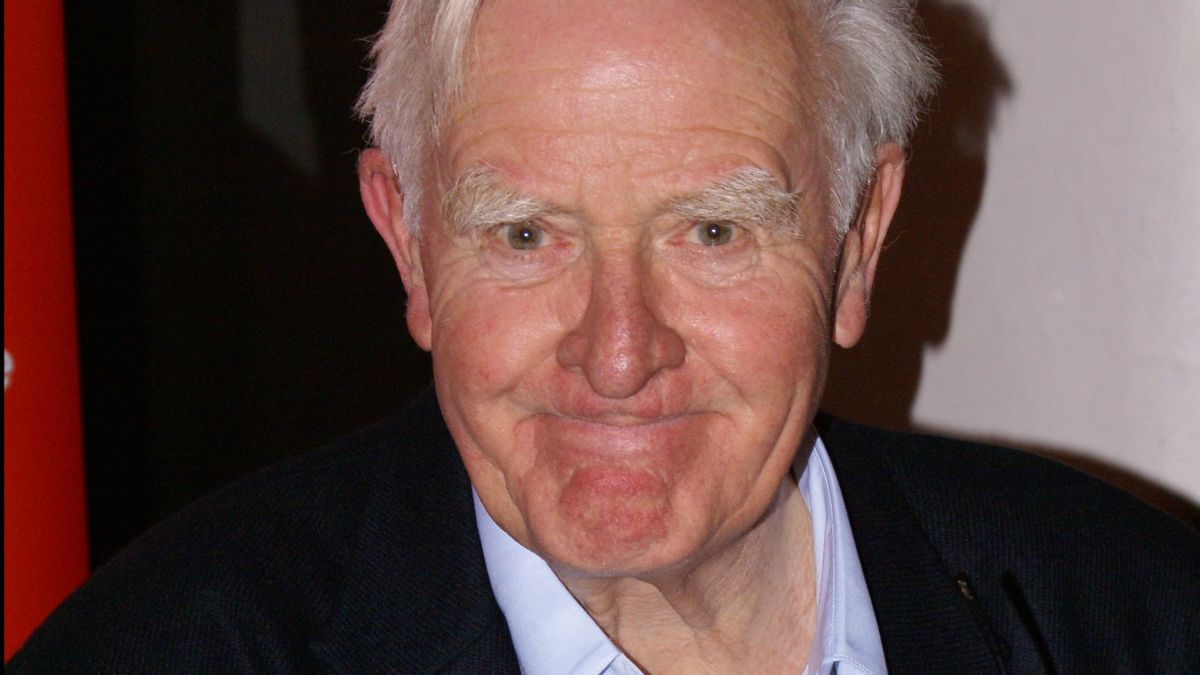JAKARTA - John le Carre, the author of the classic spy novel, Tinker Tailor Soldier Spy, has died. The 89-year-old man reportedly died of pneumonia.
John le Carre, whose real name is David Cornwell, died in Cornwall, southwest England, Saturday, December 12. A family representative announced, "He who is liked will never be seen again," was quoted by Reuters on Monday, December 14.
"It will be felt by every book lover, anyone interested in the human condition," continued Jonny Geller, CEO of The Curtis Brown Group.
Le Carre is survived by his wife, Jane and four sons. The family said in a brief statement that le Carre died of pneumonia.
By exploring the treachery at the heart of British intelligence in spy novels, le Carre challenges Western assumptions about the Cold War by defining the moral ambiguity of the battles between the Soviet Union and the West.
Unlike Ian Fleming's James Bond charm, the hero le Carre is trapped in the mirror jungle of British intelligence and has a hard time fleeing to Moscow in 1963.
Such grim depictions of the Cold War shaped popular Western perceptions of the rivalry between the Soviet Union and the United States that dominated the second half of the 20th century until the collapse of the Soviet Union in 1991.
The Cold War, to le Carre, was 'A Looking Glass War' --the thought he made the title of the 1965 novel, a situation without heroes, and where morals are sold out, full of treason involving spies in Moscow, Berlin, Washington and London.
Betrayal of family, lover, ideology and country is carried on through the novel le Carre which uses the trickery of spies as a way to tell the stories of the nations, especially Britain's sentimental failure to see its own decline.
Such was his influence that le Carre was given credit by the Oxford English Dictionary by introducing espionage terms such as "mole", "honey pot" and "pavement artist" to popular English usage.
Because of his work, British spies had some reservations about how le Carre described the MI6 Secret Intelligence Service as an incompetent, cruel and corrupt unit. le Carre has a number of fans including Cold War fighters, such as former US President George HW Bush and former British Prime Minister Margaret Thatcher.
Soldiers to spiesDavid John Moore Cornwell was born on 19 October 1931 in Dorset, England to Ronnie and Olive, although his mother, desperate for her husband's infidelity and financial inadequacy, left the family when she was five years old.
The mother and son met again decades later although the boy turned le Carre said he had "16 years without a hug" under the watchful eye of his father, a flamboyant businessman serving time in prison.
At the age of 17, Cornwell left Sherborne School in 1948 to study German in Bern, Switzerland, where he came to the attention of British spies. After being in the British Army, he studied German at Oxford, where he alerted his left-wing students to Britain's MI5 domestic intelligence service.
Le Carre was awarded a first class degree before teaching language at Eton College, the UK's most exclusive school. He also worked at MI5 in London before moving in 1960 to the Secret Intelligence Service, known as MI6.
Moving to Bonn, then the capital of West Germany, Cornwell fought on one of the strongest fronts of Cold War espionage: 1960s Berlin. As the Berlin Wall stood, le Carre wrote The Spy Who Came in from the Cold, in which a British spy is sacrificed for a former Nazi who turns communist.
le Carre wrote many novels dealing with spying and war throughout his life. Some of them are Tinker Tailor Soldier Spy (1974), The Spy Who Came in from the Cold (1963), Smiley's People (1979), and A Perfect Spy (1986).
The English, Chinese, Japanese, Arabic, and French versions are automatically generated by the AI. So there may still be inaccuracies in translating, please always see Indonesian as our main language. (system supported by DigitalSiber.id)













